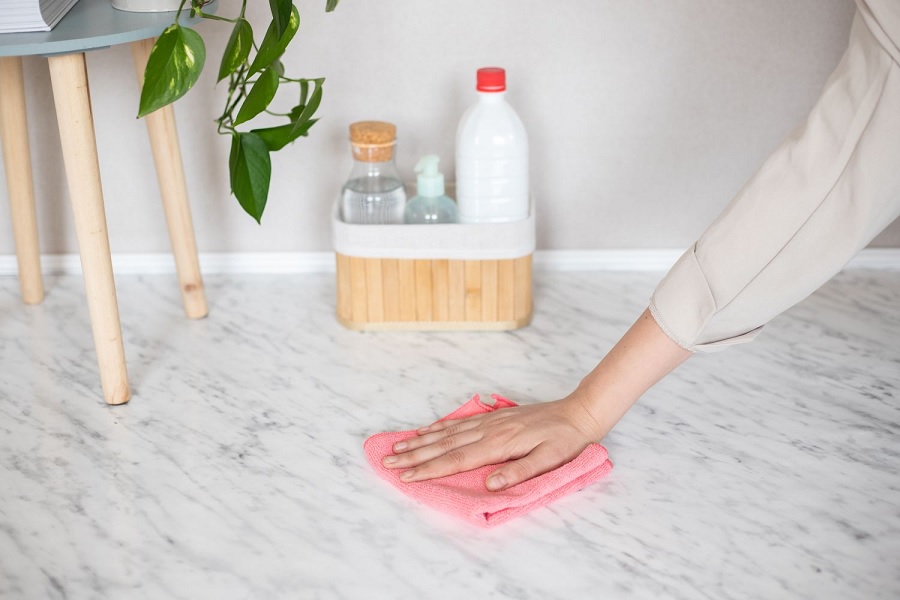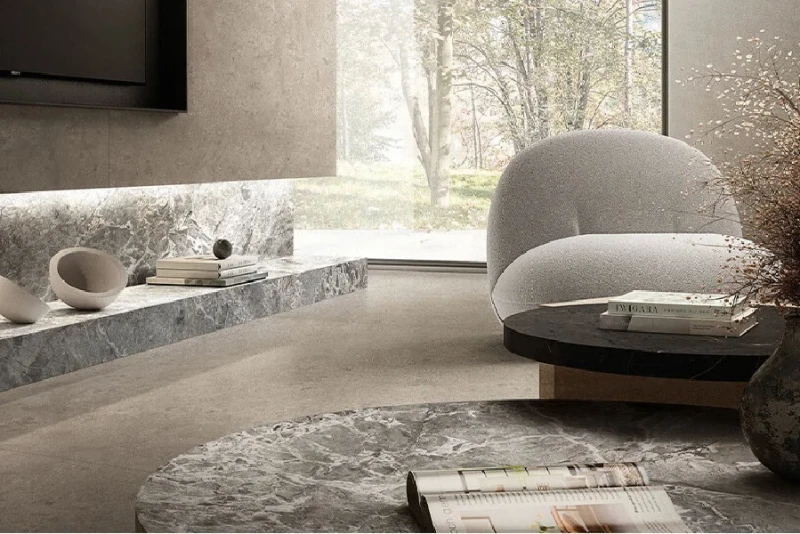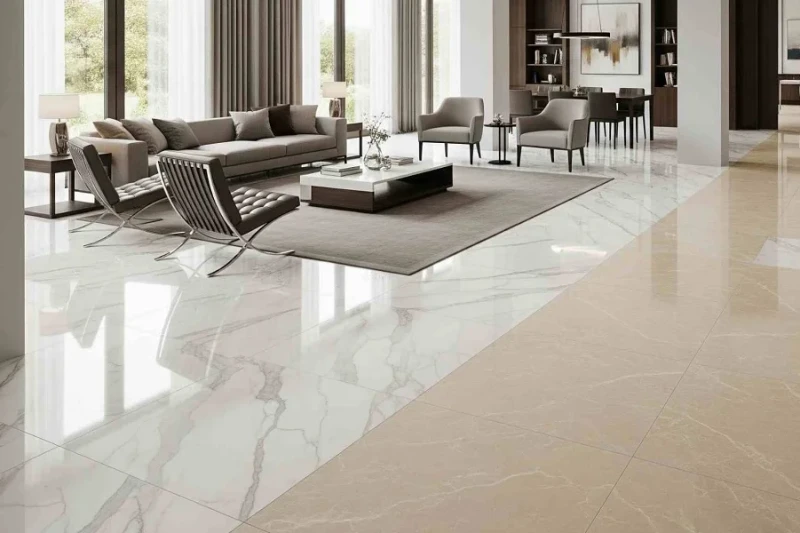
Home Remedies To Make Marble Shine | A Comprehensive Guide
Marble surfaces exude luxury and timeless elegance, but over time, even the most beautiful marble can lose some of its signature luster. Daily life, minor accidents, and even well-intentioned but incorrect cleaning methods can leave your marble looking dull. Fortunately, you don't always need to call in professionals for minor dullness. Several gentle and effective home remedies to make marble shine can help restore its natural beauty, keeping it a stunning feature in your home. Understanding how to care for your marble properly is the first step towards a lasting gleam.
Understanding Your Marble: Why Shine Fades and What to Avoid
The captivating shine of polished marble comes from its smooth, light-reflecting surface. When this surface becomes compromised, its ability to reflect light diminishes, leading to a dull appearance. Common culprits include etching from acidic substances, an accumulation of soap scum (especially in bathrooms), fine scratches from abrasive particles, and the use of improper cleaning agents. Recognizing these issues helps in choosing the right approach to restore and maintain that sought-after brilliance using appropriate home remedies to make marble shine.
The Cardinal Sins: Cleaners and Practices That Dull Your Marble
Many common household cleaners can be detrimental to marble. Acidic substances are marble's primary enemy; items like vinegar, lemon juice, or cleaners containing acids will chemically etch the calcium carbonate in marble, creating dull spots. Similarly, abrasive powders or scrub brushes can scratch the surface, scattering light and reducing shine. Even generic all-purpose cleaners, if not pH-neutral, can gradually degrade marble's finish over time, making it more susceptible to damage.
Preparing Your Marble for Home Remedy Treatments
Before attempting any remedies to enhance your marble's shine, it is crucial to start with a perfectly clean surface. Applying polishing agents or other treatments over dust, grime, or sticky residues will be ineffective and can even grind these particles into the marble, potentially causing more harm. A thorough yet gentle cleaning will ensure that your chosen home remedy can work directly on the marble itself, yielding the best possible results and a more radiant finish.

The Essential First Step: Gentle Cleaning
Begin by dusting the marble surface with a dry, clean microfiber cloth to remove loose dirt and grit. Next, prepare a simple cleaning solution by mixing a few drops of pH-neutral dish soap into a bucket of warm water. Dampen a soft cloth or sponge in this solution, wring it out well, and wipe down the marble. Follow up by rinsing the surface thoroughly with a clean, damp cloth to remove any soap residue. Finally, dry the marble completely with a separate soft, absorbent cloth, as air-drying can lead to water spots.
Effective Home Remedies to Make Marble Shine
Once your marble is clean and dry, you can explore various gentle methods to bring back its gleam. It's important to remember that these home remedies to make marble shine are intended for surfaces with light dullness, minor water spots, or a general lack of luster. For deep scratches, significant etching, or widespread damage, professional restoration might be necessary. Always start with the mildest remedy and proceed with caution.
The Baking Soda Poultice: For Mild Stains and Gentle Polishing
Baking soda is a mild abrasive that can help lift some stains and gently buff the marble surface. To create a poultice, mix baking soda with just enough water to form a thick paste, similar in consistency to peanut butter. Apply this paste to any specific dull spots or lightly stained areas. Allow it to sit for a few hours, or for stubborn spots, cover it with plastic wrap and let it sit overnight. Gently remove the dried paste with a damp cloth and buff the area with a clean, dry microfiber cloth.
Water and Chamois: The Classic Shine Enhancer
Sometimes, the simplest methods are surprisingly effective, especially for routine shine maintenance. After gently cleaning your marble, you can enhance its shine using just clean water and a high-quality chamois cloth. Lightly dampen the chamois, wring it out thoroughly so it's just barely moist, and then buff the marble surface using broad, circular motions. This technique helps to remove any lingering streaks or residues and can significantly boost the marble's natural reflectivity.
Using a Specialized Marble Polishing Powder
While many home remedies to make marble shine focus on common household ingredients, some marble polishing powders are specifically formulated for safe home use and can achieve excellent results on mild dullness. These powders are typically finer and less aggressive than professional-grade compounds. Always choose a product designed for marble and follow the manufacturer’s instructions meticulously. This usually involves creating a slurry with water, applying it to the marble, and buffing with a soft cloth or a low-speed buffer if you have one and are comfortable using it.
The Hydrogen Peroxide Method: For Light-Colored Marble Stains and Brightening
For light-colored marble that has suffered from organic stains (like coffee, tea, or juice) which can contribute to a dull appearance, a hydrogen peroxide solution can be effective. Mix a small amount of 3% hydrogen peroxide with a few drops of ammonia (ensure good ventilation and never mix ammonia with bleach). Apply this to the stain with a clean white cloth. For tougher stains, a poultice can be made by soaking a white paper towel or cotton balls in the solution, placing it on the stain, and covering it with plastic wrap for several hours. This method should be used cautiously and tested on an inconspicuous area first, especially as it may lighten some marbles. Thoroughly rinse afterward.
🏛️ Related Product: Marble Natural Stones
🌟 View Marble CollectionBeyond the Gleam: Sealing Your Marble for Lasting Protection
While sealing marble doesn't directly create shine, it plays a vital role in preserving it. A quality penetrating sealer for marble enters the pores of the stone and helps to repel water- and oil-based liquids, giving you more time to clean up spills before they can stain or etch the surface. By preventing such damage, sealing helps maintain the integrity of the marble, which in turn allows it to retain its polished, reflective quality for longer. It is an essential part of long-term marble care and indirectly supports your efforts when using home remedies to make marble shine. Check if your marble needs sealing by dripping a little water on it; if it darkens quickly, it's time to reseal.

Experience Lasting Elegance with FMA Marble!
Bringing back the luster to your marble surfaces can be immensely satisfying, and often, simple home remedies to make marble shine are all that's needed for light touch-ups. Remember that gentle, consistent care, coupled with an understanding of what your marble needs (and what it doesn't), is the key to its lasting beauty. Embrace these practices, and your marble will continue to be a radiant focal point in your home for years to come.
If maintaining that shine has you dreaming of the inherent beauty and quality of new marble, or if you're planning a project and want to select a stone known for its lasting radiance, we invite you to explore the exquisite collections at FMA Marble. At our website discover a world of premium natural stone, or contact our experienced team for expert guidance in choosing the perfect marble that not only shines beautifully but also suits your lifestyle and design vision.
Frequently Asked Questions
How often can I use baking soda to polish marble?
Baking soda should be used sparingly for polishing, primarily for spot treatments. Overuse of any mild abrasive, even baking soda, could eventually dull the finish.
Can vinegar make marble shine?
No, absolutely not. Vinegar is acidic and will etch marble, damaging the surface and making it appear duller, not shinier. Always avoid vinegar on marble.
What's the best cloth for buffing marble?
A clean, dry microfiber cloth is excellent for buffing marble to a shine due to its fine, non-abrasive fibers. A natural chamois cloth also works very well.




comments
No Comment YetLeave a Comment